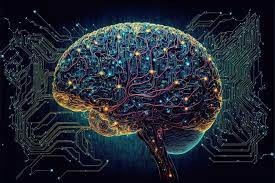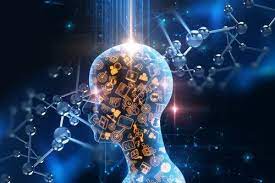Hello!
 Let’s take a brief journey through time, back to the 19th century when the IQ test first emerged. Spearheaded by Alfred Binet, a French psychologist, the test was designed to help identify students who needed additional support in school. Contrary to popular belief, it wasn’t initially intended as a measure of innate intelligence.
Let’s take a brief journey through time, back to the 19th century when the IQ test first emerged. Spearheaded by Alfred Binet, a French psychologist, the test was designed to help identify students who needed additional support in school. Contrary to popular belief, it wasn’t initially intended as a measure of innate intelligence.
Fast-forward to the 20th century, Lewis Terman from Stanford University adapted and expanded Binet’s work. His Stanford-Binet Intelligence Scale was the foundation of modern IQ testing. However, the evolution didn’t stop there. Today, we have a plethora of IQ tests, each with its nuances and measures.
The Beautiful Tapestry of Intelligence: Beyond IQ
Intelligence is a dazzling tapestry, a complex weave of cognitive processes. It is so much more than what an IQ test measures. Enter Howard Gardner and his groundbreaking theory of Multiple Intelligences. Proposing that intelligence is not a singular entity, Gardner introduced the idea of multiple intelligences, each independently valuable. From linguistic to spatial, logical-mathematical to musical, each intelligence type offers a different perspective on what it means to be intelligent.
The Craftsmanship of IQ Testing
 IQ tests are complex, intricate tools. They are the result of painstaking efforts by psychologists and researchers. Yet, what actually goes into their creation?
IQ tests are complex, intricate tools. They are the result of painstaking efforts by psychologists and researchers. Yet, what actually goes into their creation?
A standard IQ test typically measures two categories of skills: verbal and performance. The verbal component tests language skills, such as vocabulary, comprehension, and verbal memory. In contrast, the performance component grunts nonverbal skills, including pattern recognition, visual-motor coordination, and spatial processing.
Creating an IQ test is a delicate balancing act. It’s a marriage of psychology and statistics, of art and science. The result? A tool that can shed light on an individual’s cognitive strengths and weaknesses.
The Controversy of IQ Testing
Despite their widespread use, IQ tests have sparked their fair share of controversy. Critics point out that these tests may not capture the full range of human intelligence. Cultural bias, socio-economic disparities, and a myriad of other factors can influence test results.
IQ tests have also been criticized for potentially pigeonholing individuals into predefined categories, overlooking their unique abilities and potential. Yet, despite these criticisms, IQ tests have proven useful in many practical areas, like educational planning, career counseling, and research.
Future Glimpses: The New Horizon of IQ Testing
 While respecting the historical roots of IQ tests, psychologists and researchers continue to innovate and evolve these instruments to better capture the full spectrum of human intelligence. The frontier of IQ testing is a fascinating landscape of new technologies, methodologies, and theories. Machine learning, virtual reality, and genetic testing are just a few of the exciting developments shaping the future of this field.
While respecting the historical roots of IQ tests, psychologists and researchers continue to innovate and evolve these instruments to better capture the full spectrum of human intelligence. The frontier of IQ testing is a fascinating landscape of new technologies, methodologies, and theories. Machine learning, virtual reality, and genetic testing are just a few of the exciting developments shaping the future of this field.
This is the exciting world of IQ testing, a realm where the old and the new intersect, where art and science converge. The journey of IQ testing is far from over; it is continually being written, reshaped, and redefined. And we, as spectators or participants, can only marvel at the richness and complexity of this ever-evolving field
Thank you!
Join us on social media!
See you!






